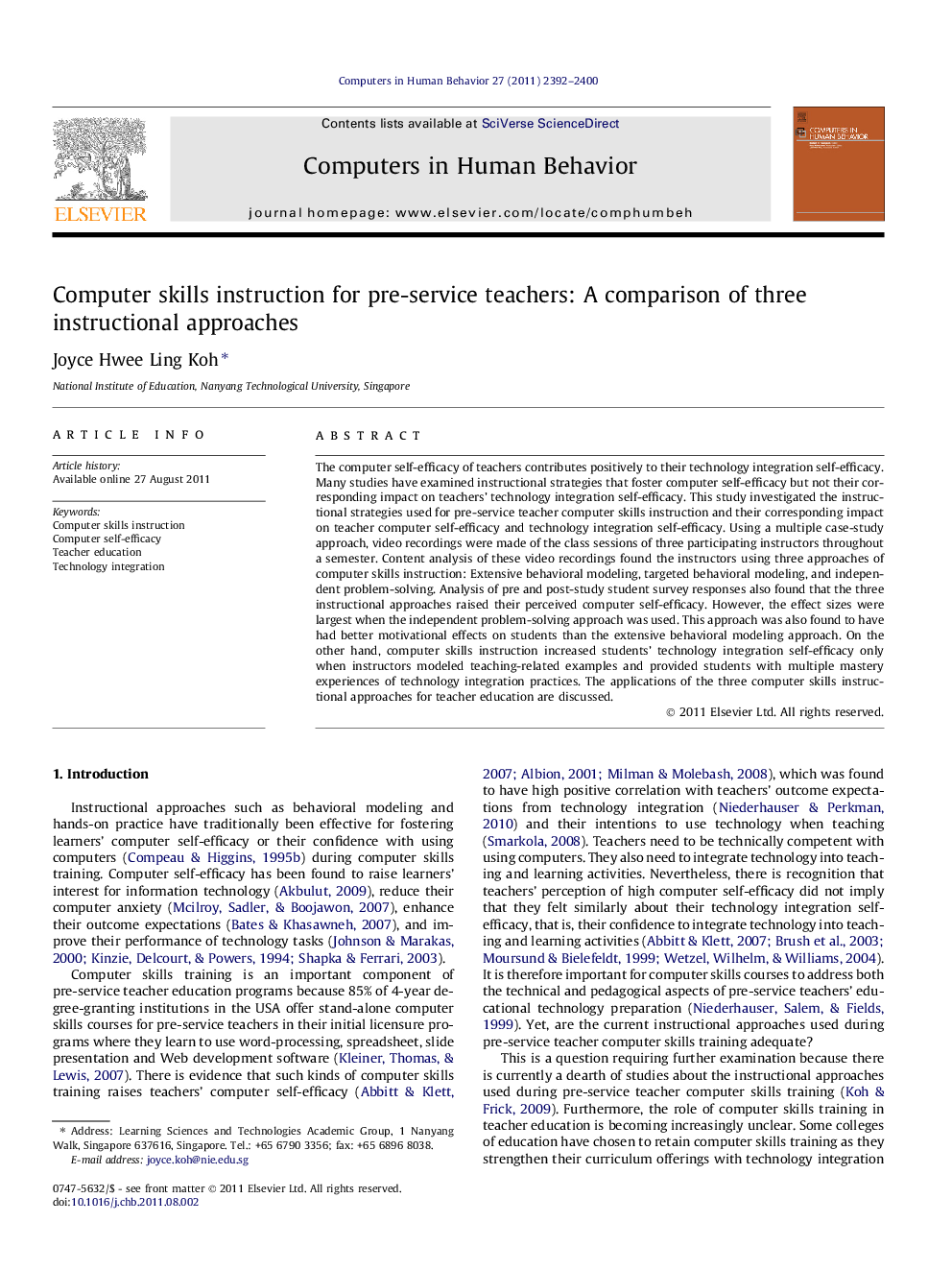| Article ID | Journal | Published Year | Pages | File Type |
|---|---|---|---|---|
| 351609 | Computers in Human Behavior | 2011 | 9 Pages |
The computer self-efficacy of teachers contributes positively to their technology integration self-efficacy. Many studies have examined instructional strategies that foster computer self-efficacy but not their corresponding impact on teachers’ technology integration self-efficacy. This study investigated the instructional strategies used for pre-service teacher computer skills instruction and their corresponding impact on teacher computer self-efficacy and technology integration self-efficacy. Using a multiple case-study approach, video recordings were made of the class sessions of three participating instructors throughout a semester. Content analysis of these video recordings found the instructors using three approaches of computer skills instruction: Extensive behavioral modeling, targeted behavioral modeling, and independent problem-solving. Analysis of pre and post-study student survey responses also found that the three instructional approaches raised their perceived computer self-efficacy. However, the effect sizes were largest when the independent problem-solving approach was used. This approach was also found to have had better motivational effects on students than the extensive behavioral modeling approach. On the other hand, computer skills instruction increased students’ technology integration self-efficacy only when instructors modeled teaching-related examples and provided students with multiple mastery experiences of technology integration practices. The applications of the three computer skills instructional approaches for teacher education are discussed.
► Three approaches of computer skills instruction increased computer self-efficacy. ► Independent problem-solving had the largest effects on computer self-efficacy. ► Teachers were more motivated when independent problem-solving was used. ► Technology integration self-efficacy increased with mastery experiences.
